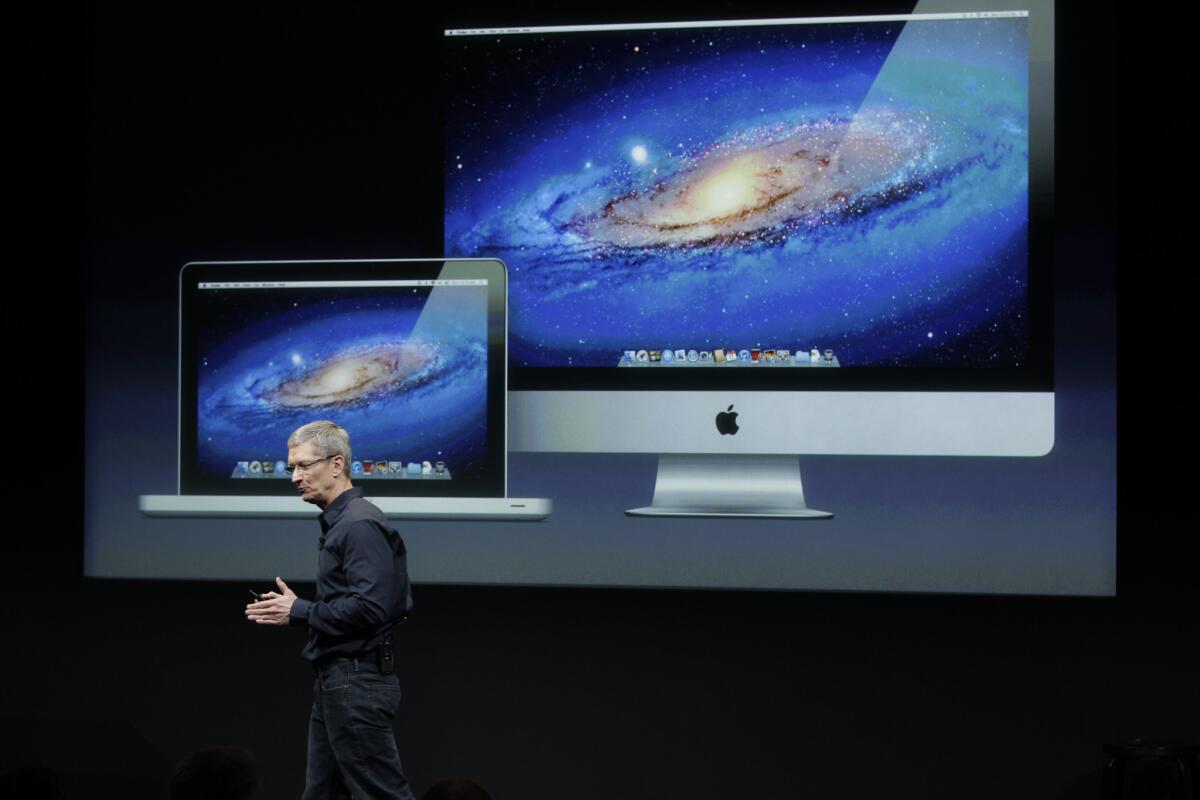Is Apple leading or following U.S. tech manufacturing trend?

- Share via
Apple’s announcement last week that it would move some manufacturing back to the United States won praise for helping to bring factory jobs home. But Apple’s competitors were considerably less impressed.
The reaction of those other consumer electronics companies to Apple’s decision to assemble some computers in the U.S. again was simple: Welcome to the club.
For instance, Hewlett-Packard was quick to point out that it never stopped building PCs in the U.S. According to HP, 36% of its business desktops and 100% of its workstation PCs are built in the U.S. This year the company will make 2.9 million PCs domestically.
“HP PCs have been assembled in the U.S. since the beginning,” Tony Prophet, senior vice president of operations for HP’s Printing and Personal Systems group, said in a blog post last week. “For example, every HP desktop workstation PC sold in the U.S. is assembled in Indianapolis.”
Apple’s announcement also came several weeks after Chinese-owned PC giant Lenovo said it planned to expand its manufacturing in the U.S., creating 115 new jobs.
“Apple is following Lenovo’s lead in defying a trend that has seen electronics manufacturing jobs migrate overseas for more than two decades,” a Lenovo spokesman said.
In its October announcement, Lenovo said it would open a manufacturing facility where it has a distribution center in Whitsett, N.C., near Greensboro. Lenovo also has 2,200 employees in Research Triangle Park, N.C., but there is no manufacturing at that site, a spokesman said.
Apple has not yet said how many U.S. jobs its manufacturing shift would create or where in the country the Mac computers would be assembled. Apple Chief Executive Tim Cook said the company would invest about $100 million in the operation.
Follow me on Twitter @obrien.
More to Read
Inside the business of entertainment
The Wide Shot brings you news, analysis and insights on everything from streaming wars to production — and what it all means for the future.
You may occasionally receive promotional content from the Los Angeles Times.











